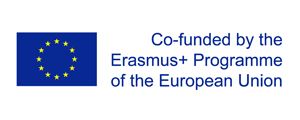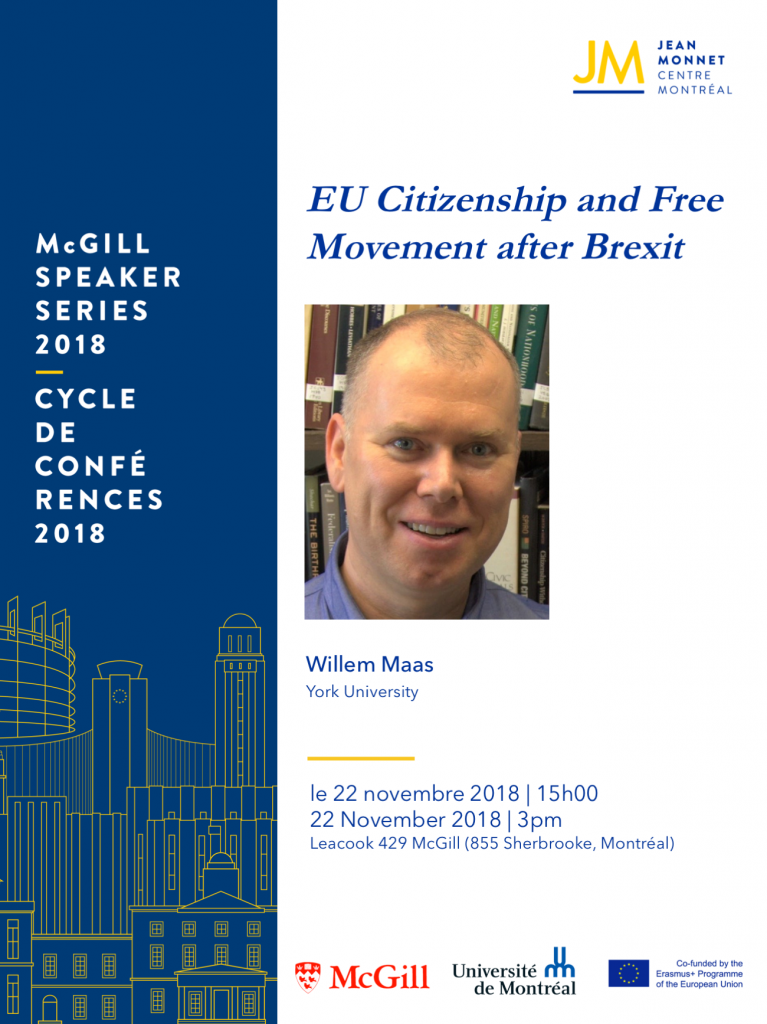Speaker series 2018: “EU Citizenship and Free Movement after Brexit”
As part of its 2018 speaker series, the Jean Monnet Centre Montréal is pleased to welcome Willem Maas (York University) to McGill University on 22 November. His talk will deal with “EU Citizenship and Free Movement after Brexit”.
Free admission.
When ?
Thursday, 22 November 2018, 3pm
Where ?
McGill University, Leacook building, room 429 (855, Sherbrooke street, Montréal)
Abstract (en anglais) :
Free movement of persons has been central to European integration since the agreement on free movement rights for coal and steel workers in the ECSC treaty (1951), and is also one of the four fundamental freedoms (free movement of persons, goods, services, and capital) that undergird the single market. Since the Maastricht treaty, these rights have been enshrined as the key element of EU citizenship, to which some have attributed federalizing aims and the European court has suggested is “destined to be the fundamental status of nationals of the Member States”. The right to live, work, and study anywhere within the EU usually tops public opinion surveys asking Europeans what the EU means to them, and these rights are enormously popular across the EU (even in the UK). Whichever form Brexit takes—hard, soft, simply symbolic, or something else—it is clear that free movement will be a significant issue in the process.
Willem Maas will examine the effects of the Brexit process and potential post-Brexit scenarios on the functioning of the EU. The UK has been a key impediment to a more fully developed EU citizenship, but ‘nationalist’ or protectionist tendencies are also present elsewhere. For example, the UK was joined by Germany, Austria and the Netherlands in 2013 in attempting to convince the Commission to place limits on potential ‘benefit tourism’. He will also consider post-Brexit scenarios for the estimated 3 million non-British UK residents (with Irish citizens the largest group) and (almost certainly an undercount because based on censuses which are far from reliable) 1.3 million British citizens resident elsewhere in the EU (not including dual/multiple citizens; so this number could decrease as Britons abroad acquire citizenship of, say, Spain or France). The focus will be on the lasting structures and future trajectory of EU citizenship and free movement.











